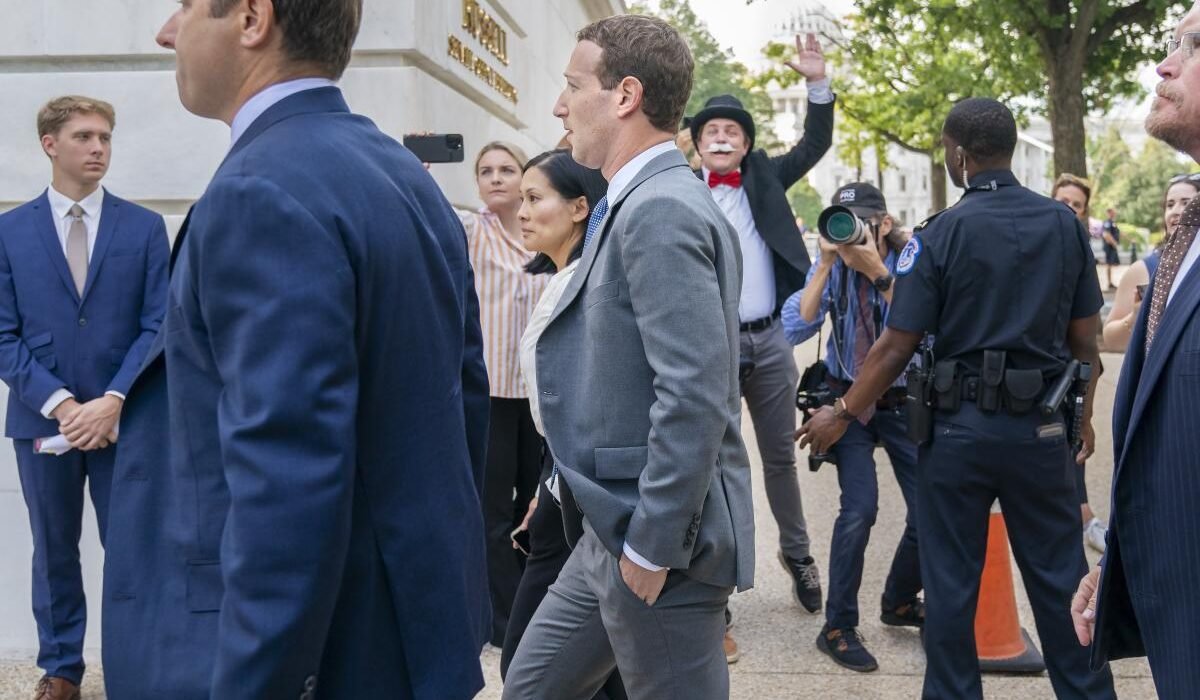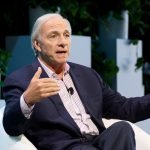
Shadow Agendas and Silicon Power: Behind the Curtain of Tech Influence in Washington
Elon Musk, Peter Thiel, and their allies are no longer lobbying government—they are the government. This post uncovers their direct roles in shaping military AI, surveillance infrastructure, and economic policy. From Neuralink to Palantir, we’re entering a technocratic age with little oversight and profound implications for democracy.
How influential tech figures, particularly Elon Musk and Peter Thiel, have woven their interests into US policy. The post explores ethical dilemmas, controversial government contracts, predictive policing, and the hidden symbiosis between industry titans and government agendas, as well as the blurred lines between national security, public interest, and private gain.
It was during a late-night doomscroll—yes, guilty—that I stumbled upon a discussion so wild it felt like political sci-fi: What if the real West Wing power brokers are a handful of tech magnates with one foot in the boardroom and the other in the Situation Room? Elon Musk, Peter Thiel, and their circle pop up not just in headlines, but deep in the veins of government, from defense contracts to AI-driven surveillance plans. Sometimes, the old adage about truth being stranger than fiction feels like an understatement.
Section 1: Movers and Shakers—When Tech Giants Walk into the White House
The revolving door between Silicon Valley and Washington DC has never spun faster. Tech titans aren’t just visiting the White House these days—they’re practically setting up shop there.
Elon Musk: Beyond Visitor Status
Is Elon Musk essentially living in the White House now? His unprecedented access to government corridors raises serious questions about the boundaries between tech and state.
Musk’s proximity to power isn’t just about photo ops. He’s reportedly tied to the office overseeing government efficiency—the same government that sends billions in contracts to his companies. This creates an awkward situation, to say the least.
“No one seems to ask how a guy can be in charge of the office of government efficiency while also being one of the state’s main contractors.”
This conflict of interest seems obvious yet largely unchallenged. Tesla and SpaceX benefit tremendously from government priorities and contracts. Without the global push for electric vehicles, Tesla wouldn’t be the powerhouse it is today. Similarly, SpaceX operates primarily as a NASA subcontractor.
Yes, SpaceX has demonstrated greater efficiency than some public-performing NASA divisions. They’ve helped optimize public resource usage and adjusted budgets. But should the company’s founder simultaneously play government watchdog? That’s the problem.
The Auditor-Contractor Paradox
The situation creates a bizarre scenario where tech CEOs wear two contradictory hats:
- Government auditor: Ensuring clean, efficient public contracts
- Primary contractor: Directly profiting from those same contracts
People working in government efficiency departments, particularly those involved in controversial Treasury audits, have close ties to Musk. This arrangement makes objective oversight practically impossible.
When does visionary business leadership cross the line into undue influence? Once you have money and power—and find yourself in the Oval Office—the temptation to shape policy that benefits your companies becomes overwhelming.
Peter Thiel and the ‘Palantir Boys’
Beneath the surface of this troubling dynamic lies another key player: Peter Thiel and his associates from Palantir Technologies.
The “Palantir Boys,” as some call them, represent another dimension of this problem. These individuals maintain their corporate positions while simultaneously performing work for the American administration—a clear conflict.
Palantir, known for its predictive policing tools and data analysis capabilities, has embedded itself deeply within government structures. Multiple Palantir-connected individuals now hold positions related to government auditing and oversight.
This means private enterprise interests have direct access to public power structures, with boundaries that are increasingly blurred or non-existent.
The Stakes Are High
Why does this matter? When tech leaders simultaneously influence policy and profit from it, the public interest takes a backseat.
Consider how government decisions directly impact these companies’ bottom lines. When Trump’s administration questioned green policies, Tesla felt the market impact immediately. These aren’t just abstract conflicts—they’re reflected in stock prices and corporate profits.
The entanglement goes beyond mere influence peddling. It represents a fundamental reshaping of the relationship between government and industry, with tech giants increasingly setting the agenda from inside rather than lobbying from outside.
As Silicon Valley’s most powerful figures continue their march into Washington, the question isn’t just who’s visiting the White House—it’s who’s running it.
Section 2: Predictive Policing, Data Dreams, and the AI Nightmare
In the shadows of global conflicts, a disturbing technological experiment is unfolding. Palantir Technologies and similar data firms aren’t just developing predictive policing tools—they’re actively deploying them in active war zones like Gaza and Ukraine.
The Battlefield Laboratory
Peter Thiel, Palantir’s founder and a key figure in what’s known as the “PayPal Mafia,” has built an empire that increasingly blurs the line between private enterprise and military intelligence. These aren’t just theoretical systems—they’re being tested in real-time combat situations.
Palantir’s AI systems are currently being used to:
- Anticipate troop movements in active conflict zones
- Predict potential casualties from military actions
- Identify targets based on data patterns rather than confirmed intelligence
What makes this particularly chilling is how these technologies have progressed from tracking known threats to predicting future ones—sometimes with horrifying implications.
“They have AI tools that pick future terrorists—sometimes children.”
This isn’t science fiction. It’s the logical evolution of programs like “gospel”—an AI system reportedly used to select targets based not on current actions but on algorithmic predictions of future behavior. Even children have been flagged as potential future threats worthy of monitoring or worse.
From War Zones to Shopping Malls
The concerning reality? The same companies piloting predictive policing in Gaza and Ukraine are simultaneously developing civilian applications. Our growing dependence on big data has created an unprecedented pipeline:
- Military applications test the technology in conflicts
- Intelligence agencies adopt similar tools for domestic surveillance
- Commercial versions track consumer behavior and spending
What begins as counterterrorism quickly becomes normalized for everyday surveillance. The technological infrastructure doesn’t differentiate between tracking potential militants and monitoring ordinary citizens’ shopping habits.
The Technocratic Vision
Behind these developments lies a troubling philosophy. Thiel and his associates advocate for what amounts to a technocratic governance model—one where data collection and algorithmic decision-making replace traditional democratic processes.
Their vision includes:
- Mass collection of citizen data for control purposes
- AI-driven systems making high-stakes decisions about public safety
- Using predictive models to identify “threats” before they materialize
If George Orwell were alive today, even he might find this reality excessive. His fictional surveillance state in “1984” lacked the algorithmic sophistication that companies like Palantir now possess.
Ethical Questions Without Easy Answers
Can an algorithm ethically identify a child as a future threat? Should predictive models determine military targets? Who oversees these systems when they operate in the shadows of national security?
These questions remain largely unaddressed while the technologies advance rapidly. The fusion of big data capabilities with military applications raises profound concerns about where this path leads—a world where algorithms might determine not just what products you see online, but who gets labeled as dangerous based on patterns invisible to human understanding.
In this brave new world of predictive policing, the line between data dreams and AI nightmares grows increasingly thin.
Section 3: The Politics of Progress—Silicon Valley’s Double-Edged Sword
In Washington’s corridors of power, a peculiar dance unfolds between government ambition and Silicon Valley innovation. The lines between public good and private profit have never been blurrier than they are today.
Project Stargate: America’s AI Gambit
The Trump administration’s “Project Stargate” represents perhaps the most ambitious fusion of government backing and tech industry power. In typical fashion, Trump announced the initiative with characteristic bombast—declaring America would become “the leader in artificial intelligence in the world.” The project aims to inject billions of dollars of public money into AI development.
At the unveiling, Oracle founder Larry Ellison stood prominently alongside Trump. What’s telling isn’t just Oracle’s involvement but the scope of their ambitions. Ellison spoke not merely about data centers (though Oracle is set to open one of the world’s largest in Texas) but about leveraging AI technology with mRNA healthcare technology to create vaccines at massive scale.
“Billions in public money fuel the race for AI dominance, but who really benefits?”
This question hangs unaddressed as corporate figures take center stage in what should be public policy discussions. The naming conventions alone—Oracle (after the mystical prophet) and Palantir (after the seeing-stone from Lord of the Rings)—hint at how these companies view their role in society.
The Biotechnology Frontier
Perhaps more concerning is how readily these technology companies are expanding into healthcare and biotechnology with minimal oversight. Neuralink, Elon Musk’s brain-machine interface company, exemplifies this trend.
While publicly framed as a breakthrough to help people with mobility restrictions or vision impairments, Neuralink raises profound ethical questions. Reports indicate high animal mortality during testing phases—with numerous monkeys dying during trials. Yet these casualties receive fraction of the attention devoted to the splashy announcements.
The pattern is unsettlingly familiar: grand public promises about technological salvation while the actual costs—ethical, financial, and biological—remain obscured.
The China Shadow
Driving much of this public-private fusion is anxiety about China’s technological advancement. American tech policy increasingly operates from a defensive posture, pouring money into keeping pace in the global AI competition.
Interestingly, while U.S. officials criticize Chinese technological exaggerations, America’s tech titans often employ similar tactics—making dramatic announcements that sometimes contain more spectacle than substance.
What’s emerging is a symbiotic relationship between Silicon Valley and Washington that serves both parties’ interests. Tech executives gain access to federal funding and regulatory goodwill. Politicians get to align themselves with innovation and job creation. Lost in this arrangement is meaningful public oversight.
The Double-Edged Sword
The current administration’s declaration of an “energy emergency” provides perfect cover for accelerating data center construction—massive energy consumers—with minimal environmental review. Oracle’s Texas facility stands to benefit directly from this policy.
What began as initiatives for American technological competitiveness increasingly resembles a complex web of corporate interests, hinting at potential speculative bubbles reminiscent of the dot-com crash.
As public money flows into private hands, we’re left wondering whether we’re witnessing technological progress or simply a sophisticated transfer of wealth—wrapped in patriotic rhetoric and technological utopianism.
TL;DR: A handful of Silicon Valley elites profoundly shape US policy behind the scenes—sometimes for innovation, sometimes for profit, often blurring lines of accountability. Our future may depend on how closely we watch them.
StargateProject, AIEthicsDebate, PublicContractsUS, NeuralinkEthics, SurveillanceCapitalism, PalantirControversy, TechIndustryInfluence, US-ChinaTechRivalry, ElonMuskGovernment, PredictivePolicingUS,techlobbyWashington, Muskgovernmentaccess, PalantirsurveillanceAI, predictivepolicing, ProjectStargate, Thielinfluence, AIethics, militarydatacontracts, Neuralinkrisks, AIinwarfare
#TechIndustryInfluence, #US-ChinaTechRivalry, #PublicContractsUS, #StargateProject, #SurveillanceCapitalism, #PalantirControversy, #PredictivePolicingUS, #AIEthicsDebate, #NeuralinkEthics, #ElonMuskGovernment,#SiliconValley, #ElonMusk, #Palantir, #PeterThiel, #AIinGovernment, #PredictivePolicing, #TechInfluence, #Neuralink, #SurveillanceState, #ShadowAgenda

